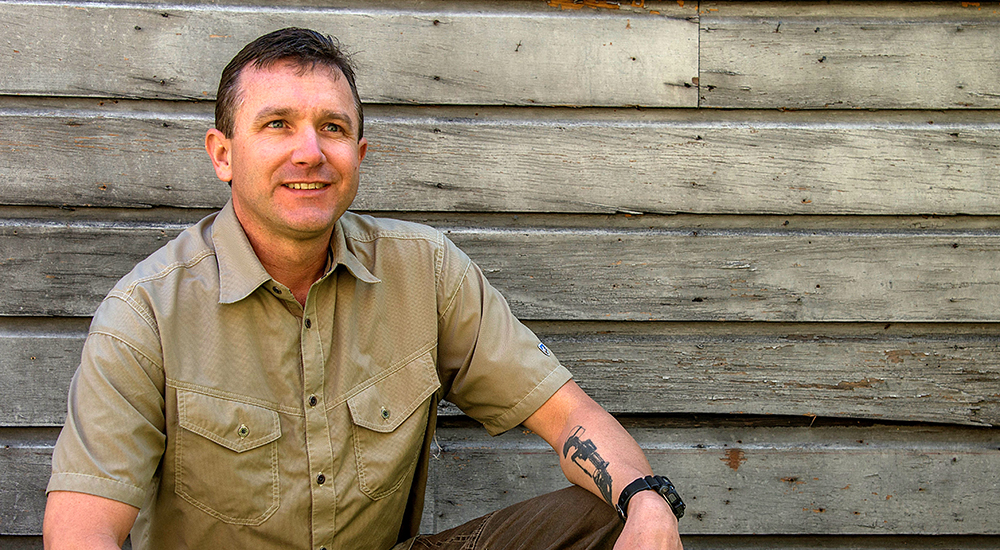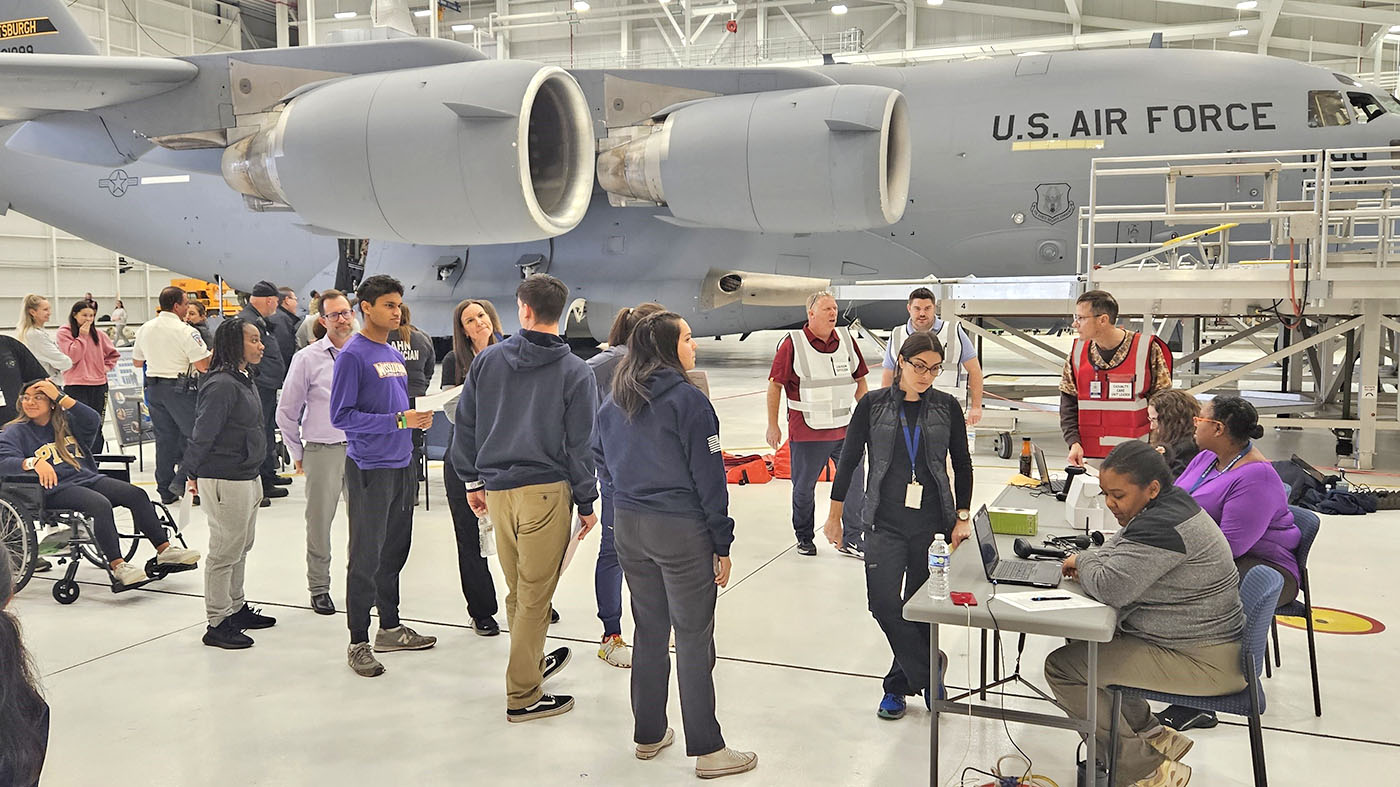After being injured in Iraq, Josh struggled with everyday life. Diagnosed with traumatic brain injury (TBI), he came to VA for help and says it has really made a difference.
When did you realize you had issues as a result of your service?
I served two tours in Iraq, Army Reserve, ’04-’05,’06-’07. As an IED hunter, you either find the explosive devices, the IEDs, or you get hit by them. Between October to March 15, when I got medevaced out, I had been hit eight different times. And it was actually my soldiers and squad leader who noticed I was slowly changing. You only can do so many concussions, and you just start not functioning right.
So, in theater, to get away from the war, I used to read books after mission, or whatnot, and it got to the point where I couldn’t even read a book because I couldn’t remember anything.
People didn’t really talk about traumatic brain injury at that time.
What happened then?
After being medevaced out… you know, my dad was a Vietnam Veteran and he really pushed to help me realize I needed to get in. And with the injuries I had, with the brain injury, VA was the only choice to really go to and get in the system and get help.
I was really pleased with the way the system was helping me out with my injuries and trying to help me recover from what I had gone through in Iraq.
What do they do for a brain injury? What’s the process they help you to improve?
With the traumatic brain injury, I would meet with the TBI groups and we would work on ways of how to help me communicate better or remember things better. I’ve done a lot of studies with the VA hospital and the University of Utah.
I’d sit in an MRI machine and they’d give me things in my hands to hold. The TV screen and things would flash, and they’d try to trace what part of my brain was having the issues.
To me, it was really neat to see the U of U Hospital and the VA system working together to try bettering our lives and make things, you know, studies to figure things out and how to make things better.
They bring those different doctors in to see you and do tests and everything. They brought me lunch which was really nice.
Is there anything else that you want to say about VA, about your care, about your recovery?
VA was just instrumental in helping me get my life back together. It’s a system that does work. Please get in and get the help.
Apply for VA health care
Enrolling for VA health care is easier than ever before. Explore your eligibility today at www.choose.va.gov/health.
Topics in this story
More Stories
Theranostics is a specialized field of nuclear medicine that uses a two-pronged approach to diagnose and treat cancer.
Air Force Veteran Shireta Jones overcomes obstacles with support from VA and adaptive devices to continue her passion for pickleball.
Pittsburgh VA and its partners practice relocating hospitalized patients during disasters and public health emergencies.







You obviously haven’t attempted to obtain treatment at VAMC Richmond. If you disagree in any way with the “treatment” thrown at you or disagree with being stuffed with antidepressants when you’re not depressed.
After seeking help from a local news agency those working in the areas that were exposed as mistreating Veterans set out to attack my credibility. Two Drs actually entered into my VA medical records and attached to a document for outside physicians that I had spent, “> 10 years in prison.” This is absolutely false and will easily be proven so. It shows what a sense of unquestionable control they believe to have over the Veterans. When you stand up for yourself they go all out to destroy you. I have attempted on several occasions to share the recordings I’ve made during my appointments proving deliberate indifference to my medical needs. They say one thing in the appointment then falsify the written records. None of the supervisors have any interest in meeting with me to verify the criminal acts being perpetrated under their watch.